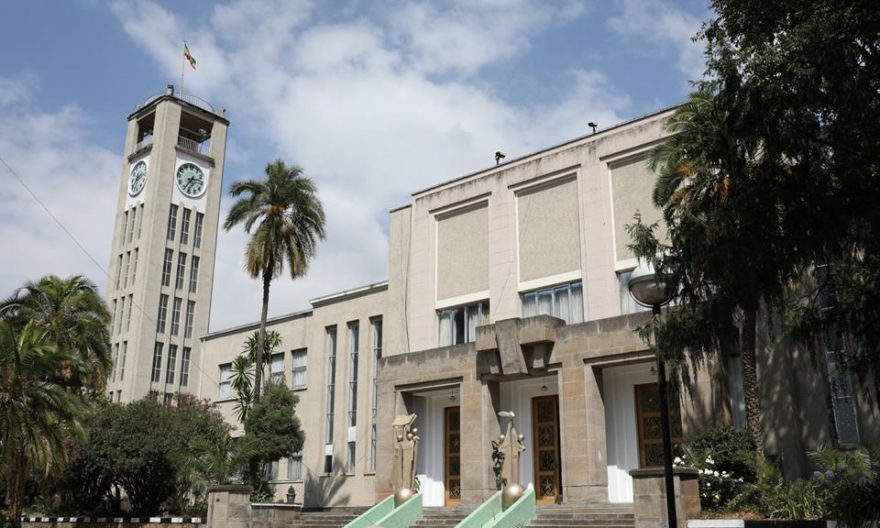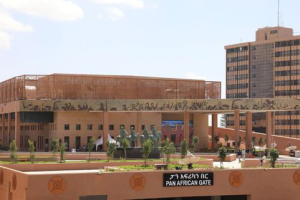
BY MENGESHA AMARE
Following what is stipulated in the constitution of the Federal Democratic Republic of Ethiopia (FDRE) Art. 54 (4) as, “Members of the House are representatives of the Ethiopian people as a whole. They are governed by: the constitution, the will of people and conscience.”
These members are elected by the people of their respective constituencies keeping fixed time interval. This idea is also constitutionally supported since Art. 54 (1) puts it like this, “Members of the House of Peoples’ Representatives shall be elected by the people for a term of five years on the basis of universal suffrage and by direct, free and fair elections held by secret ballot.
Waiting for some time, it is quite customary in the context of the Ethiopian parliament that members of the House of Peoples’ Representatives (HPR) visit the constituencies from where they have come. In so doing, they convene electorates and gather information about the promising activities undertaken to help the public make a difference and rectify the shortcomings that need to be well dealt with in a bid to have decisive inputs for the way forward.
Undeniably, the House of Peoples’ Representatives are guardians, eyes and ears of the public they have represented and as they are expected to get the voices of the society in their respective constituencies.
Democracies especially parliamentary ones must ensure that public bodies and officials are performing to their full potential with a view to providing value for coinage in the provision of public services, building confidence in the society, and being responsive to the community they are meant to be serving.
The Ethiopian parliaments especially these days have been exerting utmost effort to bring better governance, and the country can draw important lessons from various countries which have much experience along that line.
Besides, this country has to well framed institutional structure of accountability; parliamentary control strategies without jeopardizing the concept of separation of power.
The parliamentary system is portrayed under FDRE Constitution and other legislations. As clearly stipulated in the constitution, the House of Representatives has two main duties: making laws and scrutinising the work of the Government. The Government is obliged to provide both houses with the necessary information, so as to enable Parliament to scrutinize the work of the Government properly.
Back to the point, members of the HPR have come up with remarkable achievements in singling out limitations and consolidate the strengths recorded during their stay in the house as members following the established schedule that would allow members to spend visiting their constituents.
Most members of the house flinch at the word ‘recess’ and prefer to describe their time at home as ‘district work periods.’ They connect with constituents, organize and attend all kinds of meetings, participate in local events, visit every corner of their districts, and keep in constant touch with their offices.
Each year, the house recesses for months of July and August. The House uses the terms session, adjournment, and recess in both informal and more formal ways, but the concepts apply in parallel ways to both the daily and the annual activities of the house.
This writer had a stay with Misganaw Bogale, a civics and ethical education teacher graduated from Kotebe Metropolitan University. He said, “Democratic government is characterized by transparency and accountability. The primary responsibility in this regard falls on the shoulder of the parliament. The parliament has the power and the mandate to oversight the executives to ensure their policy and action commensurate with the need of society. By the advent of modern parliaments, the legislative prerogative was the basic right to scrutinize government actions.”
According to Misganaw, the legislature, often conceived as the forum of the nation, acts as custodian of the electorate’s trust. It is then tasked with ensuring executive accountability through a rigorous parliamentary process that invariably assesses the performance of Council of Ministers and their departments.
The FDRE constitution empowers the House of Peoples’ Representative to call and question any government officials including the PM and may take any measures it deems necessary. As to him, one of the principles of democratic governments is the principle of separation of powers. Under this principle, each organ of government has independent and separate function. On the other hand, what makes the concept of democracy very attractive and important is that it enables the people to participate in decision making process through their representative on important and sensitive issues of their own. The electorates therefore make sure that the rights and freedoms of the people are respected and public properties and finances are properly accounted for by those who are on administrative tasks.
Misganaw further elucidated that the executive is one of the organs of government which carries out these administrative tasks, either through implementing legislation or policy, and acquires considerable power, the ability to influence or determine a person’s conduct. The manner of exercising this power in constitutional democracy is checked by being held accountable to an organ of government distinct from it.
The active participation of the opposition political party in oversight also plays important role in ensuring proper oversight and quality supervision. Legislative control over the executive in presidential system and parliamentary system of government is different from one another. The oversight in parliamentary system of government depends on the legislative-executive relationship. While looking at the power relationship between the legislative and executive organ of both the Federal and State levels, the legislative organs are constitutionally declared to be the highest political authority.
The electorate representing the mass entrusted with the power and mandate to watch those who are in administrative tasks. On the other hand, those who are entrusted with the power of administrative tasks, and engaged in day to day activities which in one way or another affects the life of the people are required to be held accountable to the legislatures.
Misganaw added that a condition of exercising this power in constitutional democracy is checked by being held accountable to an organ of government distinct from it—the legislature. This is because legislature, the House of Peoples Representatives, is the highest organ of the Federal Government which shows that the House is with an overruling influence over the other organs. The legislature apart from its traditional role of law making power is also mandated to oversee and control the executives over all activities and functions of the executive organ of the state, which extends to checking the implementation of the law in accordance to the legislatures intent and implementation of the policies as per the desires of the legislatures.
Most importantly, parliamentary oversight is important to hold the government accountable and to ensure constitutionalism. Therefore, the institution which is mandated by the constitution and its oversight function is justified by the constitution is the legislature organ.
He said, “Effective parliament also needs cooperation between government and contending parties. Therefore, there should be a mutual understanding between the government and these parties and the government should be conscious about the relationship with contending ones inside and outside the parliament.”
In order to promote public participation and popular awareness of the political process and public policy, it is important that the legislative process be as open and as public as possible. To this end, there must be no unreasonable limitation on press reporting of debates and proceedings of the House or any of its committees. Therefore, the writer genuinely believes that the above measures, if implemented, will ensure effective parliamentary oversight which intern helpful in ensuring accountability and constitutionalism, he underscored.
THE ETHIOPIAN HERALD JULY 25/2021





